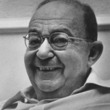The Passage of Power: The Years of Lyndon Johnson IV
(Libby/OverDrive eBook, Kindle)
Available Platforms
Description
More Details
Excerpt
Similar Titles From NoveList
Similar Authors From NoveList
Published Reviews
Choice Review
The fourth volume of Caro's monumental biography of Lyndon Johnson (CH, Apr'83; CH, Oct'90, 28-1143; CH, Oct'02, 40-1113) extends from the 1960 presidential campaign through Johnson's 1964 State of the Union address. It thus follows the depth of Johnson's humiliation as vice president and his ascent to the summit of power after President Kennedy's assassination. Throughout, Robert Kennedy is Johnson's foil in one of the bitterest rivalries in US politics. Caro's narrative examines Johnson's curiously cautious quest for the 1960 Democratic nomination and his reluctance to appear too eager to win it until it was too late, and Robert Kennedy's endeavor to deny him the vice presidential nomination. As vice president, Johnson became uncharacteristically withdrawn, marginalized by Kennedy's staff. After Kennedy's death, Johnson worked to assure continuity, convincing Kennedy's staff to remain. In the first seven weeks of his presidency, Johnson employed his undeniable political skills and the image of his martyred predecessor to lay the groundwork for civil rights, tax cuts, and the War on Poverty. Caro foreshadows dark days ahead, but in these seven weeks Johnson is at the peak of his abilities. A masterful achievement of biography and historical analysis. Summing Up: Essential. All levels/libraries. A. J. Dunar University of Alabama in Huntsville
Booklist Review
*Starred Review* Wedged between LBJ's triumphant Senate career and his presidency, this fourth volume in Caro's acclaimed Years of Lyndon Johnson series addresses the failed presidential campaign of 1960, the three frustrating years as vice president, and the transition between the Kennedy and Johnson administrations. Though seemingly focused on less compelling material than Master of the Senate (2002), the book is riveting reading from beginning to end, perhaps because Caro's real subject is political power, both its waxing and waning. There is plenty of both here, as Caro shows Johnson struggling with his lifetime fear of being humiliated, first in the brilliant account of his mystifying refusal to enter the 1960 campaign before it was too late to win and then in the agonizing story of the vice-presidential years, throughout which Johnson tiptoed on the edge of the humiliation he dreaded (mainly at the hands of Robert Kennedy, whose relationship with LBJ Caro calls perhaps the greatest blood feud in American political history ). But the real tour de force in this stunning mix of political and psychological analysis comes in the account of the seven-week transition between administrations, from November 23, 1963, to January 8, 1964, when Johnson delivered his first State of the Union message. From the moment he assumed the presidency, on Air Force One with Jackie Kennedy at his side, Johnson, as Caro portrays him, was a man reborn, his zeal for and uncanny understanding of the craft of governance risen from the ashes of the brow-beaten vice president. It is an utterly fascinating character study, brimming with delicious insider stories (the Bobby Baker scandal, the way LBJ maneuvered Senator Harry Byrd into passing the federal budget and clearing the way for the 1964 civil rights bill to reach the floor, and on and on). Political wonks, of course, will dive into this book with unbridled passion, but its focus on a larger-than-life, flawed but fascinating individual the kind of character who drives epic fiction should extend its reach much, much further. Unquestionably, one of the truly big books of the year. HIGH-DEMAND BACKSTORY: This much-anticipated fourth in a roundly acclaimed series will receive top-drawer media coverage, in print, online, and on television. 125,000 first printing.--Ott, Bill Copyright 2010 Booklist
Publisher's Weekly Review
Caro's Pulitzer-winning multivolume biography reaches a magisterial climax (though not its Vietnam era denouement) in this riveting account of Johnson's vice-presidency in the Kennedy administration and early presidency through 1964. It's a roller-coaster narrative as Johnson plummets from the powerful Senate majority leader post to vice-presidential irrelevance, hated and humiliated by the Kennedy brothers, then surges to presidential authority with the crack of Lee Harvey Oswald's rifle and forces a revolutionary civil rights act through a recalcitrant Congress. Caro's penetrating study of competing power modes pits Kennedyesque charisma against Johnson's brilliant parliamentary street-fighting, backroom arm-twisting, and canny manipulation of personal motives, all made vivid by rich profiles: JFK, the polished, amused aristocrat; Bobby, the brutal, guilt-haunted zealot; Johnson, the uncouth neurotic-egomaniacal, insecure, sycophantic as an underling, sadistic as a boss, ruthless and corrupt yet possessed of an empathy for the downtrodden (he picked cotton in his penniless youth) that outshines Camelot's noblesse oblige. The author's Shakespearean view of power-all court intrigue, pageantry, and warring psychological drives-barely acknowledges the social movements that made possible Johnson's legislative triumphs. But Caro's ugly, tormented, heroic Johnson makes an apt embodiment of an America struggling toward epochal change, one with a fascinating resonance in our era of gridlocked government and paralyzed leadership. Photos. 300,000 announced first printing. Agent: Lynn Nesbit, Janklow and Nesbit. (May 1) (c) Copyright PWxyz, LLC. All rights reserved.
Library Journal Review
The first volume of Caro's The Years of Lyndon Johnson was published in 1982; the third, Master of the Senate, garnered the 2003 Pulitzer Prize. Caro (The Power Broker: Robert Moses and the Fall of New York) now presents the fourth volume-a major event in biography, history, even publishing itself. The time span covered here is short, opening with Johnson's unsuccessful try for the 1960 Democratic presidential nomination and closing with his 1964 State of the Union address mere weeks after JFK's assassination. Caro's focus is on those seven weeks between the assassination and the address. He again alters our view of Johnson by illuminating how, even in the earliest moments of confusion and grief following the assassination, he moved beyond the humiliations of his years as vice president and, with a genius for public leadership buttressed by behind-the-scenes manipulation of the levers of power, ensured the success in Congress of JFK's dormant economic and civil rights programs while establishing himself, however briefly, as a triumphant president, fulfilling his lifetime ambition. VERDICT Caro has once more combined prodigious research and a literary gift to mount a stage for his Shakespearean figures: LBJ, JFK, and LBJ's nemesis Robert F. Kennedy. Readers' only disappointment will be the necessary wait for Caro's next volume.-Bob Nardini, Niagara Falls, NY (c) Copyright 2012. Library Journals LLC, a wholly owned subsidiary of Media Source, Inc. No redistribution permitted.
Kirkus Book Review
The fourth volume of one of the most anticipated English-language biographies of the past 30 years. This installment covers Johnson's vice presidency under John F. Kennedy, his ascension to the presidency after the Kennedy assassination and his initial nine months as president. As in the earlier volumes, Caro (Master of the Senate, 2002, etc.) combines a compelling narrative and insightful authorial judgments into a lengthy volume that will thrill those who care about American politics, the foundations of power, or both. Even Johnson acolytes, sometimes critical about portions of the earlier volumes, are less likely to complain about their hero's portrayal here. While documenting the progression of his subject's character flaws, Caro admires Johnson's adroit adaptability. Though he chafed as vice president after giving up the leadership of the U.S. Senate, Johnson seems to have developed a grudging admiration for JFK. However, Johnson and Robert Kennedy could not put aside the animosity that had taken root on Capitol Hill. When Robert became not only his brother's confidant but also his attorney general, Johnson resented the appointment. Caro documents the feuds between them and vividly relates how the warfare between the two men continued after JFK's assassination. On a more upbeat track, the author explains how Johnson's lifelong commitment to helping the dispossessed led to passage of unprecedented civil-rights legislation. The evidence seems strong that JFK could not have engineered passage of much of the civil-rights legislation because he lacked Johnson's influence over members of Congress. The fifth volume is in the works, and it is expected to cover Johnson's election to the White House and his full term, with the conduct of the Vietnam War ceaselessly dogging him. The author writes that the next book "will be very different in tone." Before beginning the Johnson biography, Caro published a life of Robert Moses, The Power Broker (1974), a book many scholars consider a watershed in contemporary biography. The Johnson project deserves equal praise.]] Copyright Kirkus Reviews, used with permission.
Booklist Reviews
*Starred Review* Wedged between LBJ's triumphant Senate career and his presidency, this fourth volume in Caro's acclaimed Years of Lyndon Johnson series addresses the failed presidential campaign of 1960, the three frustrating years as vice president, and the transition between the Kennedy and Johnson administrations. Though seemingly focused on less compelling material than Master of the Senate (2002), the book is riveting reading from beginning to end, perhaps because Caro's real subject is political power, both its waxing and waning. There is plenty of both here, as Caro shows Johnson struggling with his lifetime fear of being humiliated, first in the brilliant account of his mystifying refusal to enter the 1960 campaign before it was too late to win and then in the agonizing story of the vice-presidential years, throughout which Johnson tiptoed on the edge of the humiliation he dreaded (mainly at the hands of Robert Kennedy, whose relationship with LBJ Caro calls "perhaps the greatest blood feud in American political history"). But the real tour de force in this stunning mix of political and psychological analysis comes in the account of the seven-week transition between administrations, from November 23, 1963, to January 8, 1964, when Johnson delivered his first State of the Union message. From the moment he assumed the presidency, on Air Force One with Jackie Kennedy at his side, Johnson, as Caro portrays him, was a man reborn, his zeal for and uncanny understanding of the "craft of governance" risen from the ashes of the brow-beaten vice president. It is an utterly fascinating character study, brimming with delicious insider stories (the Bobby Baker scandal, the way LBJ maneuvered Senator Harry Byrd into passing the federal budget and clearing the way for the 1964 civil rights bill to reach the floor, and on and on). Political wonks, of course, will dive into this book with unbridled passion, but its focus on a larger-than-life, flawed but fascinating individual—the kind of character who drives epic fiction—should extend its reach much, much further. Unquestionably, one of the truly big books of the year. HIGH-DEMAND BACKSTORY: This much-anticipated fourth in a roundly acclaimed series will receive top-drawer media coverage, in print, online, and on television. 125,000 first printing. Copyright 2012 Booklist Reviews.
Library Journal Reviews
Begun in 1982 with The Path to Power, Caro's multivolume "The Years of Lyndon Johnson" is indeed a magnum opus. The three volumes so far, which include Means of Ascent (1990) and Master of the Senate (2002), have collectively won a National Book Award, a Pulitzer Prize, and two National Book Critics Circle awards and have sold one and a half million copies. This fourth volume highlights five key years in Johnson's life, starting in 1958 with his campaign for the presidency and ending in 1964 as he found himself in the White House after John F. Kennedy's assassination. Caro draws on interviews and thousands of primary documents to tell his story. As the 300,000-copy first printing suggests, demand should be big; look for ebooks of the first two volumes on November 23 (Master is already available in that format).
[Page 94]. (c) Copyright 2011. Library Journals LLC, a wholly owned subsidiary of Media Source, Inc. No redistribution permitted.Library Journal Reviews
The first volume of Caro's The Years of Lyndon Johnson was published in 1982; the third, Master of the Senate, garnered the 2003 Pulitzer Prize. Caro (The Power Broker: Robert Moses and the Fall of New York) now presents the fourth volume—a major event in biography, history, even publishing itself. The time span covered here is short, opening with Johnson's unsuccessful try for the 1960 Democratic presidential nomination and closing with his 1964 State of the Union address mere weeks after JFK's assassination. Caro's focus is on those seven weeks between the assassination and the address. He again alters our view of Johnson by illuminating how, even in the earliest moments of confusion and grief following the assassination, he moved beyond the humiliations of his years as vice president and, with a genius for public leadership buttressed by behind-the-scenes manipulation of the levers of power, ensured the success in Congress of JFK's dormant economic and civil rights programs while establishing himself, however briefly, as a triumphant president, fulfilling his lifetime ambition. VERDICT Caro has once more combined prodigious research and a literary gift to mount a stage for his Shakespearean figures: LBJ, JFK, and LBJ's nemesis Robert F. Kennedy. Readers' only disappointment will be the necessary wait for Caro's next volume.—Bob Nardini, Niagara Falls, NY
[Page 85]. (c) Copyright 2012. Library Journals LLC, a wholly owned subsidiary of Media Source, Inc. No redistribution permitted.Library Journal Reviews
The first volume of Caro's The Years of Lyndon Johnson was published in 1982; the third, Master of the Senate, garnered the 2003 Pulitzer Prize. Caro (The Power Broker: Robert Moses and the Fall of New York) now presents the fourth volume-a major event in biography, history, even publishing itself. The time span covered here is short, opening with Johnson's unsuccessful try for the 1960 Democratic presidential nomination and closing with his 1964 State of the Union address mere weeks after JFK's assassination. Caro's focus is on those seven weeks between the assassination and the address. He again alters our view of Johnson by illuminating how, even in the earliest moments of confusion and grief following the assassination, he moved beyond the humiliations of his years as vice president and, with a genius for public leadership buttressed by behind-the-scenes manipulation of the levers of power, ensured the success in Congress of JFK's dormant economic and civil rights programs while establishing himself, however briefly, as a triumphant president, fulfilling his lifetime ambition. VERDICT Caro has once more combined prodigious research and a literary gift to mount a stage for his Shakespearean figures: LBJ, JFK, and LBJ's nemesis Robert F. Kennedy. Readers' only disappointment will be the necessary wait for Caro's next volume.-Bob Nardini, Niagara Falls, NY- "Social Sciences" LJ Reviews 5/3/2012 (c) Copyright 2011. Library Journals LLC, a wholly owned subsidiary of Media Source, Inc. No redistribution permitted.
Publishers Weekly Reviews
Caro's Pulitzer-winning multivolume biography reaches a magisterial climax (though not its Vietnam era denouement) in this riveting account of Johnson's vice-presidency in the Kennedy administration and early presidency through 1964. It's a roller-coaster narrative as Johnson plummets from the powerful Senate majority leader post to vice-presidential irrelevance, hated and humiliated by the Kennedy brothers, then surges to presidential authority with the crack of Lee Harvey Oswald's rifle and forces a revolutionary civil rights act through a recalcitrant Congress. Caro's penetrating study of competing power modes pits Kennedyesque charisma against Johnson's brilliant parliamentary street-fighting, backroom arm-twisting, and canny manipulation of personal motives, all made vivid by rich profiles: JFK, the polished, amused aristocrat; Bobby, the brutal, guilt-haunted zealot; Johnson, the uncouth neurotic—egomaniacal, insecure, sycophantic as an underling, sadistic as a boss, ruthless and corrupt yet possessed of an empathy for the downtrodden (he picked cotton in his penniless youth) that outshines Camelot's noblesse oblige. The author's Shakespearean view of power—all court intrigue, pageantry, and warring psychological drives—barely acknowledges the social movements that made possible Johnson's legislative triumphs. But Caro's ugly, tormented, heroic Johnson makes an apt embodiment of an America struggling toward epochal change, one with a fascinating resonance in our era of gridlocked government and paralyzed leadership. Photos. 300,000 announced first printing. Agent: Lynn Nesbit, Janklow and Nesbit. (May 1)
[Page ]. Copyright 2012 PWxyz LLCReviews from GoodReads
Citations
Caro, R. A. (2012). The Passage of Power: The Years of Lyndon Johnson IV . Knopf Doubleday Publishing Group.
Chicago / Turabian - Author Date Citation, 17th Edition (style guide)Caro, Robert A. 2012. The Passage of Power: The Years of Lyndon Johnson IV. Knopf Doubleday Publishing Group.
Chicago / Turabian - Humanities (Notes and Bibliography) Citation, 17th Edition (style guide)Caro, Robert A. The Passage of Power: The Years of Lyndon Johnson IV Knopf Doubleday Publishing Group, 2012.
Harvard Citation (style guide)Caro, R. A. (2012). The passage of power: the years of lyndon johnson IV. Knopf Doubleday Publishing Group.
MLA Citation, 9th Edition (style guide)Caro, Robert A. The Passage of Power: The Years of Lyndon Johnson IV Knopf Doubleday Publishing Group, 2012.
Copy Details
| Collection | Owned | Available | Number of Holds |
|---|---|---|---|
| Libby | 2 | 1 | 0 |






































